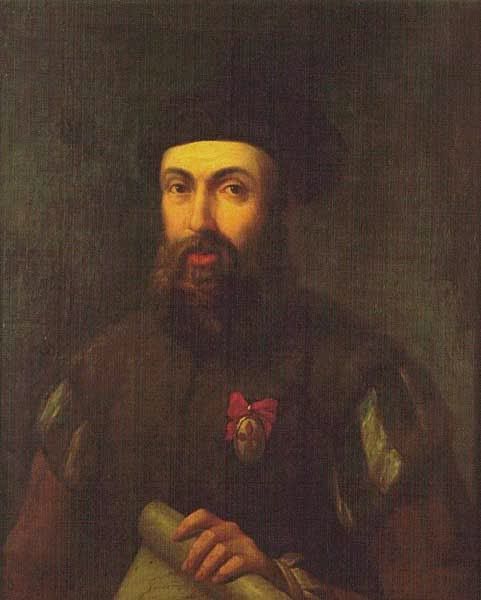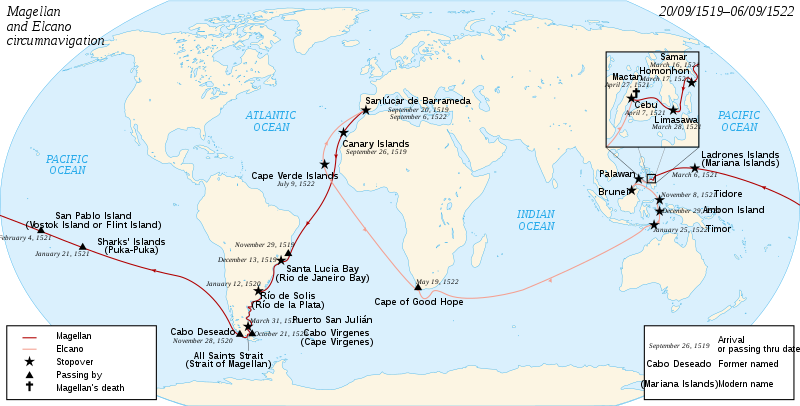We live in a time when much knowledge is taken for granted. Do you ever stop and think about how we know the things we know?
Geology, for one, is incredible--but how did we learn about the composition of the core of the earth? How did we find out how the continents look. How did they form?
What about the shape of the earth?
Ferdinand Magellan is one of the most influential men from the 16th century. Before his time, there were many who still were unsure about the theory that the world is round. For years and years, it was thought that it was just flat.
Magellan was someone willing to take a risk; he went beyond what many had done. He was a Portuguese explorer who lived during a time when the Spanish were trying to find a new route to the Spice Islands (Near Indonesia). Ferdinand believed that he could reach the Spice Islands by sailing west through the new world. This idea was considered insanity to some people. After a difficult and fatal voyage, Ferdinand (although he died during the voyage--just short of finishing) was credited for the first to circumnavigation of the earth. This solidified the theory that the earth truly is round.
What does this have to do with today? What can we learn from this?
As someone interested in the Business world, I chose to connect this to something I find very important in business. Thinking, tinkering, and working hard to accomplish something more and do something better is the key to success.
In an article about characteristics of remarkable employees, the eighth characterisitc of a remarkable employee is as defined:
-------------------------------------------------------------------------------------------------
They’re always fiddling. Some people are rarely satisfied (I mean that in a good way) and are constantly tinkering with something: Reworking a timeline, adjusting a process, tweaking a workflow.
Great employees follow processes. Remarkable employees find ways to make those processes even better, not only because they are expected to… but because they just can't help it.
-------------------------------------------------------------------------------------------------
This is specific in defining a characteristic of an employee, but I feel that if an individual can develop this characteristic early in their life, many problems would be solved in society.
I've recently found interest in a subject posted on Sarah Martin's blog page. How are we to encourage more involvement? Whether it be political or social or in science, it starts with desire.
Magellan had desire. He, along with other influential people from the 16th Century, had to feed off of the drive and passion from within in order to accomplish the things they did. Magellan made a discovery that changed the world--people now had a much better understanding of the planet they lived on.
If we are to have more participation from others in this life--in this world--they have to have a desire deep within to do something. The sources are there; the internet has made an incredible expansion to the possibilities of participation and information. Education needs to be creating and fostering desire--now the question remains: HOW DO WE DO THAT?


No comments:
Post a Comment